Training Goal
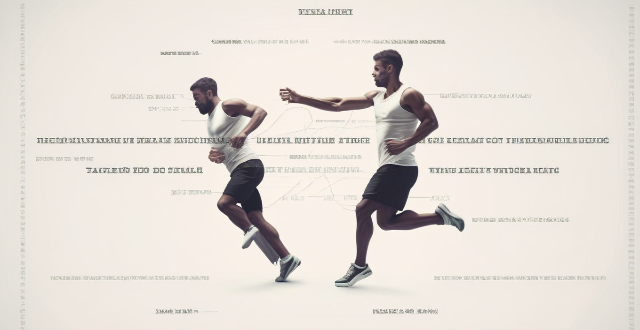
What role does mental training play in improving sports skills ?
The text discusses the role of mental training in enhancing sports skills. It outlines key points including mental toughness, visualization techniques, goal setting, self-talk, and concentration skills. Mental toughness helps athletes handle pressure, recover from setbacks, and persist through challenges. Visualization techniques can program the subconscious, reduce anxiety, and increase motivation. Goal setting clarifies objectives, tracks progress, and maintains motivation. Positive self-talk boosts confidence, enhances performance, and regulates emotions. Concentration skills block distractions, maintain attention, and improve decision making. The conclusion states that mental training is an essential component of overall athletic success.
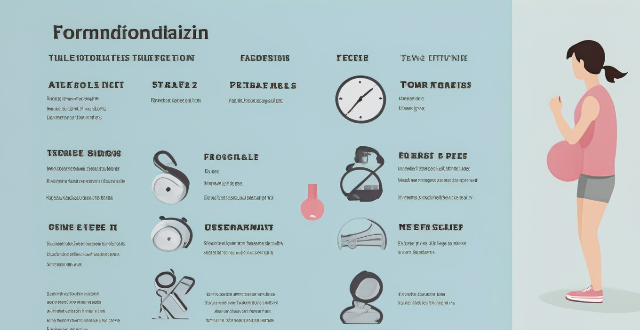
How can I create a personalized sports training plan for myself ?
Creating a personalized sports training plan is important for achieving fitness goals. Here's how to create one: assess your fitness level, set clear goals, choose appropriate training methods, develop a weekly routine, and monitor progress & make adjustments.

What are the key elements of a successful sports training program ?
A successful sports training program is essential for athletes to improve performance and achieve goals. Key elements include clear objectives, comprehensive planning, variety and progression in workouts, proper technique and form, recovery and regeneration strategies, mental toughness and focus, nutrition and hydration, and continuous assessment and adjustment. By incorporating these elements, athletes can maximize potential and minimize risk of injury and burnout.

How do I measure progress in my sports training plan ?
Measuring progress is crucial for athletes to track development and adjust their training plans. Set SMART goals, track performance, evaluate technique, monitor body composition, assess fitness level, and reflect on mental state to measure progress effectively.

How often should I do strength training ?
This article discusses the recommended frequency for strength training based on various factors such as your fitness level, goals, and schedule. It provides guidance for beginners, intermediate and advanced trainees, and those with specific goals like building muscle mass or losing weight. Sample workout schedules are also provided to help you plan your routine effectively. The article emphasizes the importance of proper form, progressive overload, and adequate recovery time for optimal results.

What is the difference between strength training and bodybuilding ?
The text discusses the differences between strength training and bodybuilding, which are two popular forms of exercise. The main difference is that while both aim to improve physical fitness and appearance, strength training focuses on increasing muscular strength and endurance, whereas bodybuilding aims to build a well-defined, aesthetically pleasing physique. Techniques used in strength training include compound movements with heavy weights and low reps, while bodybuilding uses isolation exercises with moderate weights and high reps. The outcomes of strength training include increased strength and athletic performance, while bodybuilding leads to muscle growth and definition.

How do I manage stress while training for a marathon ?
Managing stress is crucial during marathon training. Tips include setting realistic goals, following a structured plan, prioritizing recovery, staying hydrated and nourished, getting enough sleep, practicing mindfulness, seeking support, managing time wisely, and embracing the process. These strategies help minimize stress and make the training journey more enjoyable.

What are the best training methods for a marathon ?
The article provides a summary of the best training methods for a marathon, including long runs, interval training, hill training, tempo runs, cross-training, recovery weeks, race pace workouts, and tapering. It emphasizes the importance of consistency, patience, and listening to one's body during training.

How can sports leadership training programs benefit coaches and athletes ?
Sports leadership training programs can greatly benefit coaches and athletes by enhancing their skills and knowledge, leading to improved performance on and off the field. Coaches can improve communication, leadership qualities, motivation techniques, goal setting, and tactical knowledge, while athletes can develop self-confidence, teamwork skills, responsibility, time management, and mental toughness.

How can technology help in designing and monitoring a sports training plan ?
Technology has revolutionized sports training, allowingTechnology has revolutionized sports training, allowing workout programs through wearable devices allowing for more personalized and efficient workout programs through wearable devices, data analytics, and virtual training environments. It aids in designing training plans by collecting performance data, tracking movement patterns, simulating game scenarios, and customizing regimens based on individual needs. Technology also enhances monitoring progress with real-time feedback, recovery management tools, and adaptive goal setting features. These advancements provide valuable insights that traditional methods cannot match, shaping the way athletes reach their peak performance.

How does one train for a marathon if they have never done any extreme sports before ?
Training for a marathon can be a daunting task, especially if you have never done any extreme sports before. However, with the right mindset and training plan, it is possible to achieve your goal. Here are some tips on how to train for a marathon: 1. Set realistic goals based on your current fitness level, age, and time commitment. 2. Start slowly by incorporating walking or light jogging into your daily routine and gradually increasing the intensity and duration of your workouts. 3. Build up your endurance by incorporating long-distance runs into your training plan, starting with shorter distances and gradually increasing the length of each run. 4. Incorporate other forms of exercise into your training plan, such as swimming, cycling, or strength training, to improve your overall fitness level and reduce the risk of injury. 5. Focus on proper nutrition and hydration by eating a balanced diet that includes plenty of fruits, vegetables, whole grains, and lean proteins, and staying hydrated by drinking plenty of water throughout the day and during your workouts. 6. Prioritize rest and recovery by scheduling rest days into your training plan and getting enough sleep each night to ensure that your body has the energy it needs to perform at its best. 7. Seek professional advice from a coach or trainer who can provide guidance on proper form, technique, and training strategies to help you achieve your goals safely and effectively.

What are the benefits of attending a high-performance tennis training camp ?
Attending a high-performance tennis training camp can significantly improve players' skills and overall performance. These specialized programs offer a range of benefits, including technical skill enhancement, physical conditioning, mental toughness development, exposure to high-level competition, networking opportunities, personalized instruction, and off-court education. With a focus on stroke technique, footwork drills, strategy development, strength and cardiovascular training, flexibility, mental preparation, and stress management, these camps are designed to foster a competitive mindset and prepare players for the rigors of professional tennis. Additionally, the chance to play against strong opponents, receive feedback from experienced coaches, and connect with peers and potential mentors further enhances the value of these camps. Personalized training plans, goal setting workshops, and video analysis also contribute to the comprehensive nature of the training. Beyond physical and technical improvement, camps provide education on nutrition, sports psychology, and equipment knowledge, ensuring that participants are well-equipped both on and off the court. Overall, high-performance tennis training camps offer a holistic approach to tennis development, making them an invaluable resource for players looking to elevate their game.
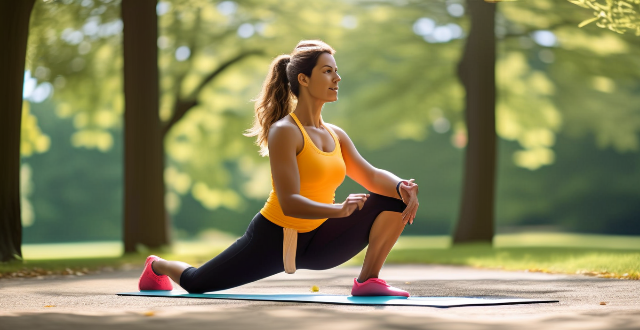
What is the best way to structure a training program for a beginner athlete ?
As an AI assistant, I can provide general guidelines and tips on how to structure a training program for a beginner athlete. Before starting any training program, it is important to set clear goals and objectives. Every training session should start with a warm-up and end with a cool-down period. Strength training should be a key component of any beginner athlete's training program. Cardiovascular training is essential for improving endurance, burning calories, and enhancing overall health. Flexibility and mobility are often overlooked but are crucial for preventing injury, improving performance, and maintaining good posture. Recovery and rest are equally important as training itself. By following these guidelines and seeking guidance from qualified coaches or trainers, beginner athletes can safely and effectively improve their fitness levels and achieve their desired outcomes.

How often should I change up my sports training routine to avoid plateauing ?
To avoid plateauing in sports training, it's important to periodically change your routine based on your goals, progress, and how your body feels. Incorporating variety, monitoring progress, and seeking professional guidance can help you continue making gains in your chosen sport.

Is it necessary to hire a personal trainer for strength training ?
The text discusses the pros and cons of hiring a personal trainer for strength training. Pros include customized workouts, accountability, proper form, variety, and goal setting. Cons are cost, scheduling conflicts, personal chemistry, self-motivation, and accessibility. The decision to hire a personal trainer depends on individual circumstances and preferences.

What kind of training do I need to participate in a marathon or trail run ?
To participate in a marathon or trail run, it is essential to have a comprehensive training plan that focuses on endurance, strength, speed, and recovery. This includes gradually increasing the distance of long runs, incorporating tempo runs and hill repeats for endurance, core workouts and lower body exercises for strength, interval training and fartlek for speed, as well as prioritizing adequate sleep and nutrition for recovery. Mental preparation techniques like visualization and goal setting can also be beneficial. On race day, pacing strategies, equipment checks, and a detailed race plan are crucial for success.

What are the key elements of successful sports career management ?
Managing a successful sports career involves various elements that work together to ensure the athlete's success. Key elements include goal setting, time management, skill development, mental preparation, nutrition and hydration, injury prevention and recovery, networking and relationship building, and financial management. Athletes must set both short-term and long-term goals, manage their time effectively, develop physical and technical skills, prepare mentally for competitions, maintain proper nutrition and hydration, prevent and recover from injuries, build strong relationships with coaches and teammates, and manage their finances wisely.

How can mental training improve physical abilities in athletes ?
Mental training is crucial for athletes as it enhances physical abilities by improving focus, managing stress, and promoting a positive mindset. Techniques such as visualization, self-talk, and emotional intelligence contribute to better performance.

Why is critical thinking training important ?
In today's complex world, critical thinking training is essential for effective problem-solving, communication, objectivity, creativity, and future preparedness. It enhances decision-making, collaboration, fairness, open-mindedness, and adaptability to changes. Investing in this training leads to success and positive impacts in various domains.

What are the best practices for delivering personal safety training in a workplace setting ?
The text provides a detailed guide on the best practices for delivering personal safety training in a workplace setting. It emphasizes the importance of assessing workplace needs, developing a comprehensive training program, using interactive methods, involving expert instructors, regularly updating and revising the training, encouraging open communication, measuring effectiveness, and following up with ongoing support. The goal is to ensure that the training is engaging, effective, and helps mitigate risks within the workplace.

Is high-intensity interval training (HIIT) beneficial for reducing stress ?
The text discusses the potential benefits of High-Intensity Interval Training (HIIT) for stress reduction, including releasing endorphins, improving cardiovascular health, boosting self-confidence, enhancing focus and concentration, and providing a sense of accomplishment. It also provides tips for incorporating HIIT into a routine, such as starting slowly, choosing enjoyable activities, setting realistic goals, incorporating recovery time, and seeking professional guidance.
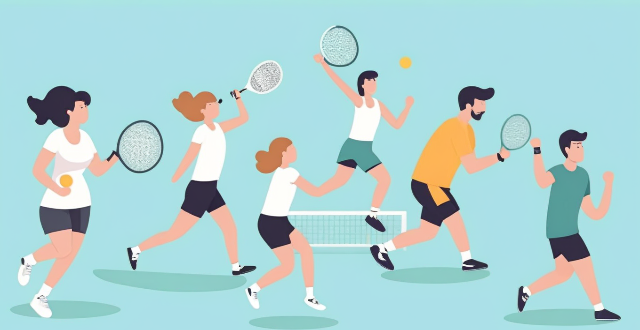
What should I expect from a week-long tennis training camp ?
A week-long tennis training camp is designed to enhance your skills, provide intensive training, and offer opportunities for social interaction. You can expect to see improvements in stroke technique, footwork & movement, strategy & tactics, and physical fitness. The camp will have a structured schedule with morning practices, afternoon matches, and evening reviews. Experienced coaches will provide personalized feedback and motivational support. You will also have the chance to meet fellow tennis enthusiasts and learn from peers. Some camps may include lectures on nutrition and sports psychology, as well as recreational outings. By the end of the camp, you should receive a comprehensive assessment and actionable feedback to continue developing your game. Overall, a tennis training camp offers an immersive experience aimed at refining your skills, gaining confidence, and becoming a more well-rounded tennis player.

How long does it take to see results from critical thinking training ?
The time it takes to see results from critical thinking training depends on factors such as individual differences, quality of training, frequency and intensity of practice, and feedback mechanisms. Short-term outcomes can be seen within 1-3 months, mid-term outcomes within 3-6 months, and long-term outcomes after 6 months or more. Consistent effort and practice are key to achieving lasting improvements in critical thinking abilities.

How important is rest and recovery during a tennis training camp ?
The text discusses the significance of rest and recovery in a tennis training camp. It outlines six key reasons why taking time to rest and recover is crucial: preventing overuse injuries, enhancing performance, promoting muscle growth and repair, improving immune function, enhancing learning and adaptation, and maintaining motivation and enjoyment. Incorporating adequate rest periods into the training schedule can ensure that athletes stay healthy, perform better, and derive maximum benefit from the camp experience.

How can I improve my sports skills quickly ?
Improving sports skills quickly involves setting clear goals, consistent practice, professional coaching, performance analysis, cross-training, technique focus, visualization, rest, learning from professionals, and staying motivated.

How often should I go to the gym to see results ?
The frequency of gym visits depends on fitness goals, current fitness level, and workout intensity. Factors to consider include: 1. Fitness Goals: - Weight Loss: 3-5 days per week of moderate to high-intensity exercise. - Muscle Building: Strength training 2-3 times per week with rest days. - Endurance Training: Run or cycle 3-4 times per week. - Flexibility/Yoga: Practice daily for best results. 2. Current Fitness Level: - Beginners: Start with 2-3 days per week and gradually increase. - Intermediate: Aim for 3-4 days per week of targeted workouts. - Advanced: Up to 5-6 days per week of specialized training. 3. Intensity of Workouts: - High Intensity: Allow for more recovery time; 2-3 intense sessions per week. - Moderate Intensity: Can be done 3-5 times per week. - Low Intensity: May be done daily, but focus on active recovery. Recommended routines vary depending on the goal, such as cardiovascular exercise and strength training for weight loss, compound exercises for muscle building, long slow distance and interval training for endurance, and daily practice for flexibility and yoga. Tips for success include setting realistic goals, mixing up exercises, listening to your body, and staying consistent. Rest days are important for recovery and growth.

How much weight should I lift during strength training ?
The amount of weight you should lift during strength training depends on various factors such as your fitness level, goals, and experience. Here are some guidelines to help you determine the appropriate weight for your routine: start with a light weight, increase gradually, choose the right number of repetitions, listen to your body, and consider your goals. Remember to consult with a fitness professional or personal trainer to develop a customized program that meets your specific needs and goals.
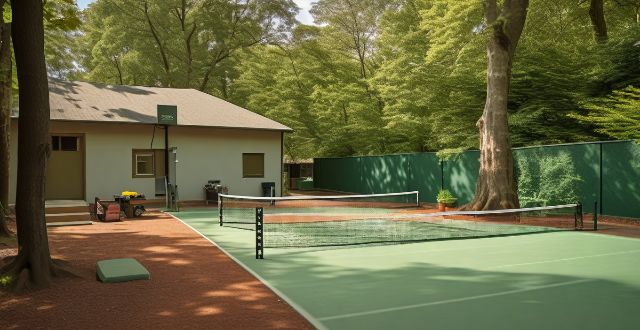
How often should I attend a tennis training camp to improve my game significantly ?
How often you should attend a tennis training camp to improve significantly depends on your current level and experience, goals, quality of training, personal commitments, physical recovery needs, and budget. Finding a balance that works for you is key to maximizing your chances of improvement.

How do online teacher training courses compare to traditional in-person workshops ?
This text compares online teacher training courses with traditional in-person workshops in terms of flexibility, interactivity, cost-effectiveness, personalization, networking opportunities, practice and application, technology requirements, certification, scalability, and updates. It concludes that both have unique advantages and limitations, and the choice often depends on individual preferences and the specific goals of the training.

How do I prevent injuries during marathon training ?
Preventing injuries during marathon training is crucial for a successful and enjoyable race. To reduce the risk of injury, runners should warm up and cool down properly, gradually increase training intensity, incorporate cross-training, wear proper footwear, stay hydrated and well-nourished, schedule rest days, listen to their bodies, engage in strength training and flexibility work, and prepare for race day with pacing strategies and course familiarization. By following these guidelines, runners can minimize the chances of getting injured and maximize their potential for success on race day.